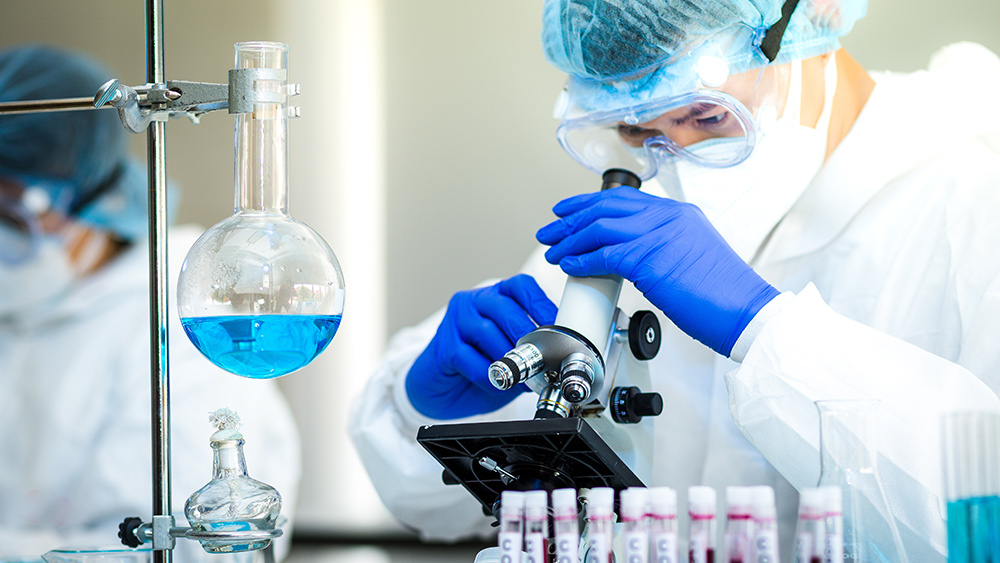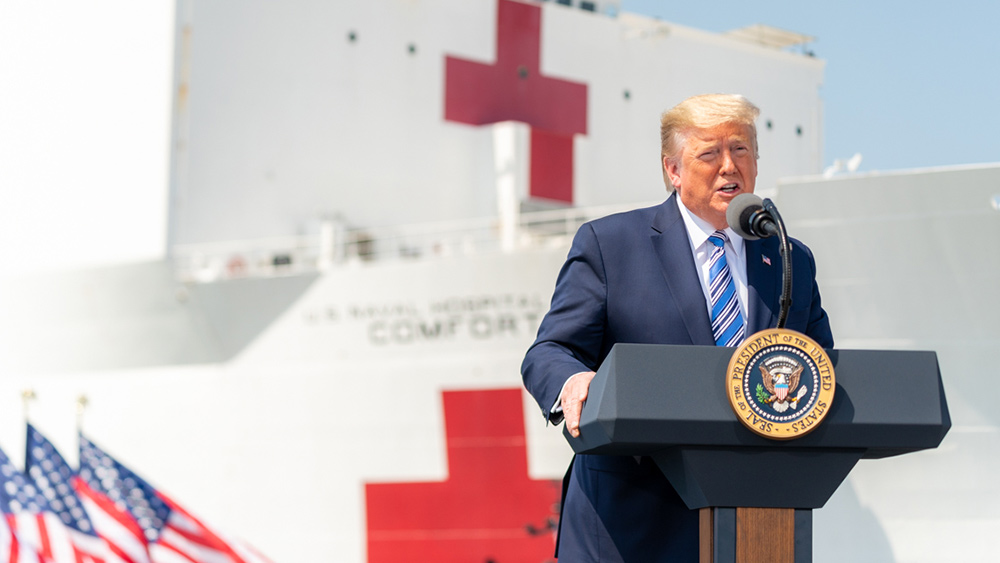
AstraZeneca announced on Tuesday, June 15, that the antibody cocktail it has been developing failed to stop Wuhan coronavirus (COVID-19) symptoms from appearing.
The trial, named "Storm Chaser," was on Phase III. It involved 1,121 adult volunteers from the United States and the United Kingdom. The vast majority of the volunteers did not have COVID-19 symptoms at the start of the trial. But they were exposed to the coronavirus soon after the trial started.
AstraZeneca claimed the goal of the trial was to figure out whether the long-acting antibody cocktail it developed could protect people who had recently been in contact with coronavirus-positive persons in places like nursing homes. (Related: QUACKERY: After granting EUA to COVID vaccines for antibody response, FDA now says antibodies are useless.)
The Phase III trial found that the antibody cocktail, known as AZD7442, was only 33 percent effective in reducing the risk of people developing COVID-19 symptoms after exposure compared with the trial's placebo. Twenty-three volunteers who received AZD7442 developed symptomatic COVID-19 following exposure to the disease. Seventeen people from the placebo group also developed symptomatic COVID-19 after exposure.
AstraZeneca claims the difference between the two groups is "not statistically significant." It is running other studies of the antibody cocktail to help clarify the findings.
The company also claims that in-depth analysis showed AZD7442 had some preventative effect.
A statement from AstraZeneca claimed that trial participants who became infected up to a week after taking AZD7442 were 51 percent less likely to develop symptoms. Patients who did not experience symptoms for more than a week after contact were 92 percent less likely to develop symptoms after taking the antibody cocktail.
Myron Levin, the study's lead researcher, said the results suggest the antibody cocktail "may be useful in preventing symptomatic COVID-19 in individuals not already infected." Levin is a professor of medicine at the University of Colorado Anschutz Medical Campus.
"There is still a significant need for prevention and treatment options for certain populations," said Levin.
AstraZeneca also pointed out how all participants supposedly had negative antibody tests when they were dosed with the cocktail to exclude prior infections.
"While this trial did not meet the primary endpoint against symptomatic illness, we are encouraged by the protection seen in the PCR negative participants following treatment with AZD7442," said AstraZeneca Executive Vice President Mene Pangalos in a statement.
AstraZeneca will continue testing antibody cocktail in other trials
AstraZeneca's antibody cocktail began generating buzz when it was announced, long before the company could even prove its efficacy. The U.S. ordered between 500,000 to 700,000 doses for $205 million. The U.K. made an order for one million doses but is now reconsidering it given the lackluster trial results. America's order for the antibody cocktail was to be delivered later this year, but that deal could also be reconsidered given the trial results.
On Tuesday, AstraZeneca representatives said discussions with the federal government regarding the next steps the company will take were "ongoing." AstraZeneca is also waiting for results from another ongoing trial, known as the Provent trial, that features the antibody cocktail.
The Provent trial's goal is to figure out whether the antibody cocktail can prevent infection in people with compromised immune systems or are otherwise at high risk of contracting COVID-19.
Despite the lackluster results from the Storm Chaser trial, the company is hoping to revive AZD7442's fortunes by putting all its hopes into further studies. Another five trials, including the Provent trial, are testing the antibody cocktail as a possible treatment or in prevention.
The antibody cocktail and other antibody drugs like it are being viewed by pharmaceutical companies as ways to protect people with weakened immune systems from COVID-19. These people cannot respond well to coronavirus vaccines because of their health.
Learn more about the trials being conducted by pharmaceutical companies like AstraZeneca to test its vaccines and other experimental COVID-19 treatments by reading the latest articles at Pandemic.news.
Sources include:
Please contact us for more information.















